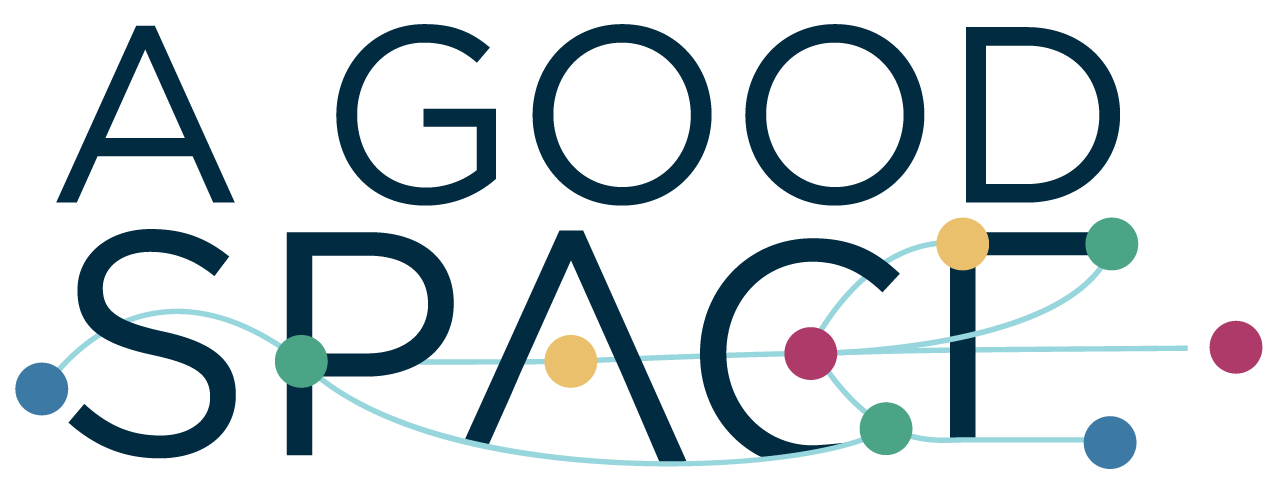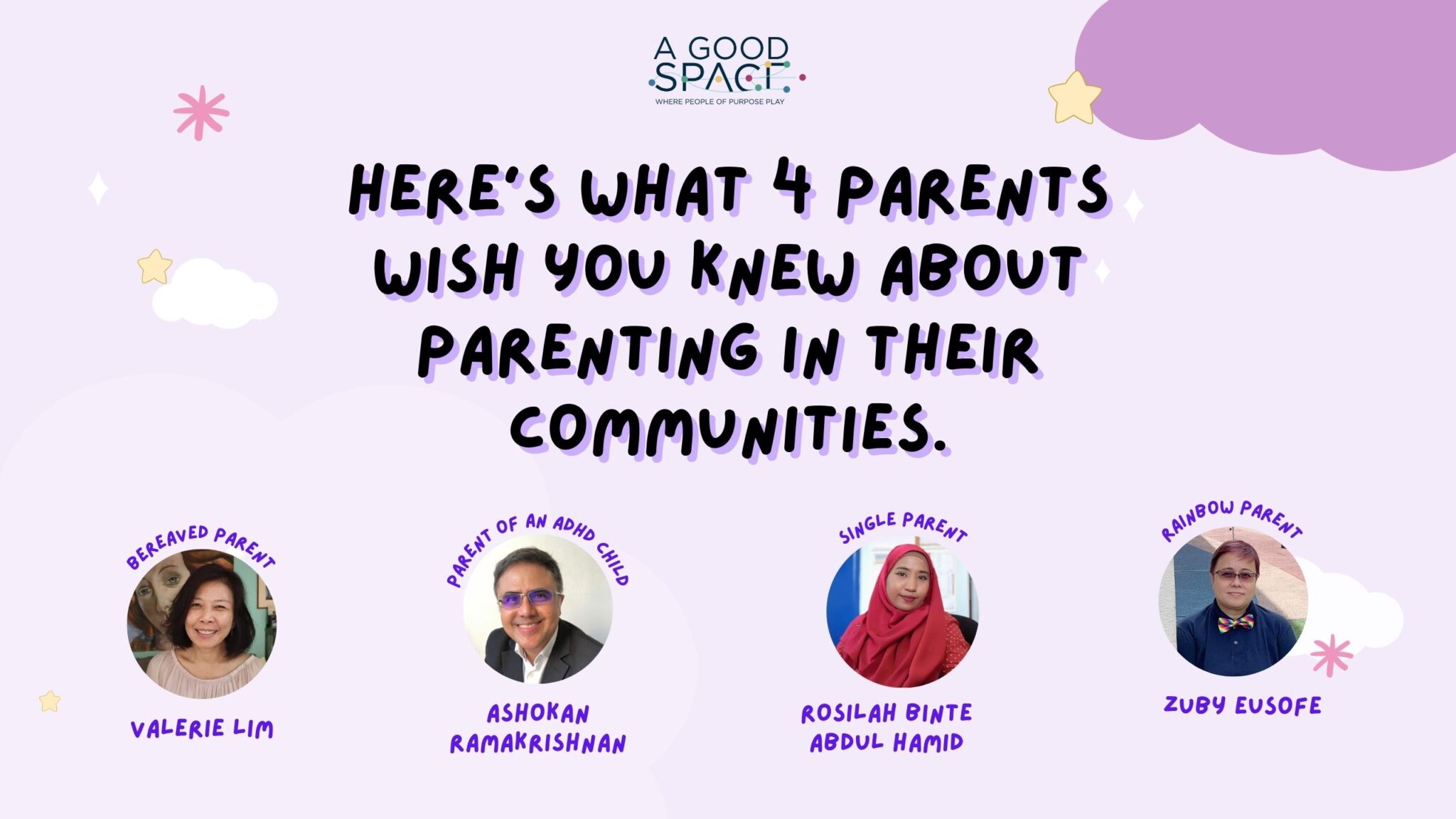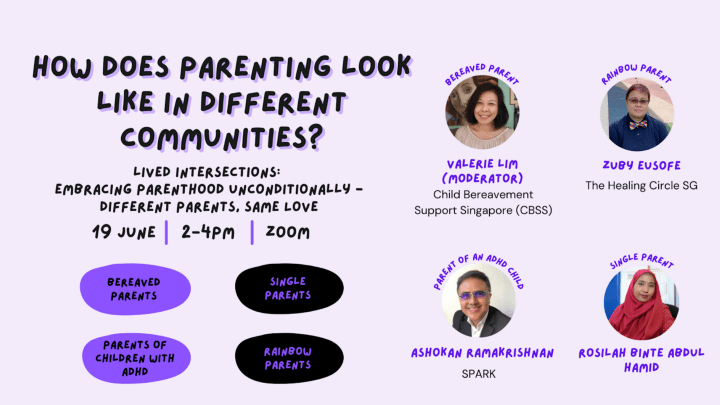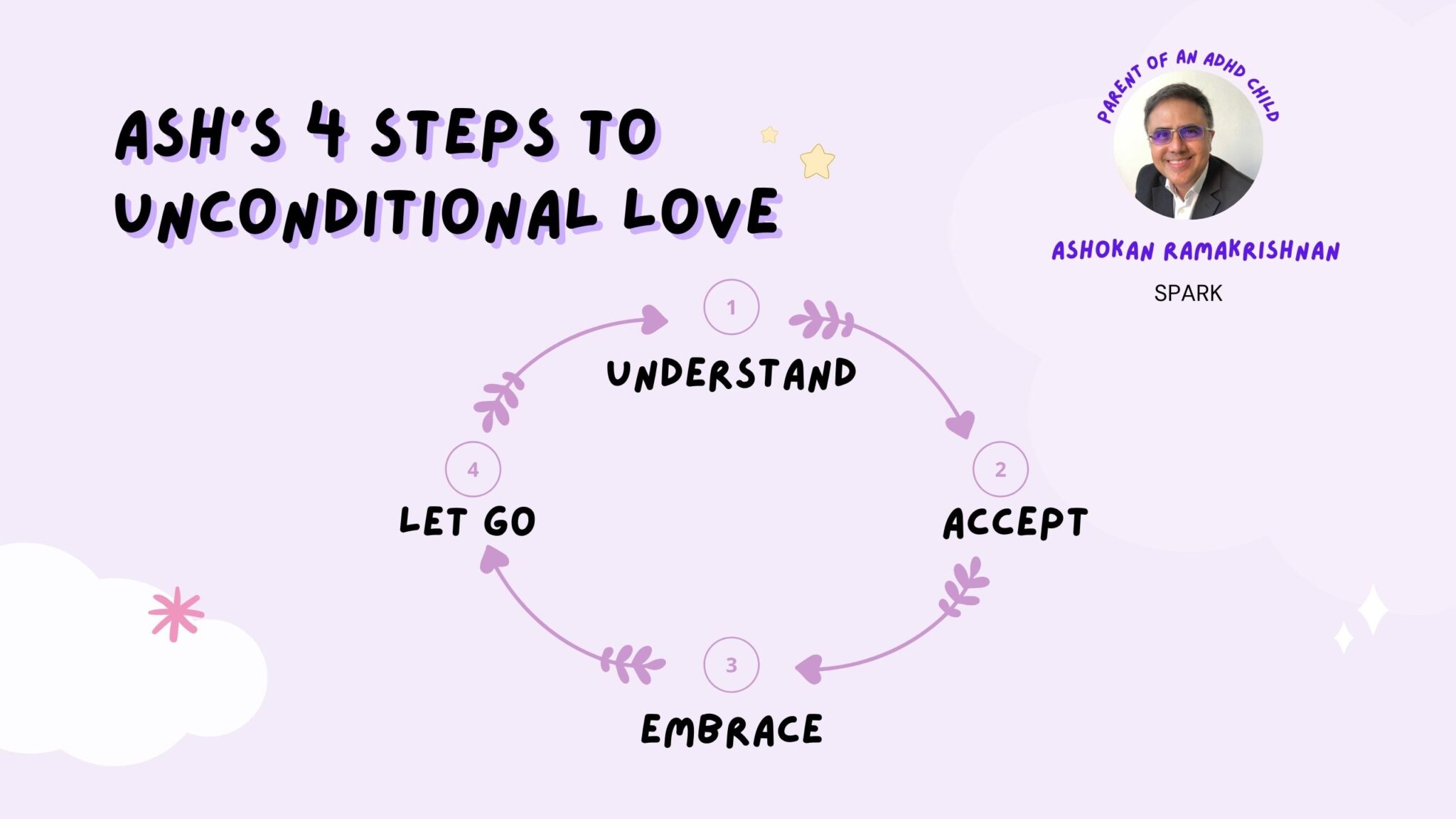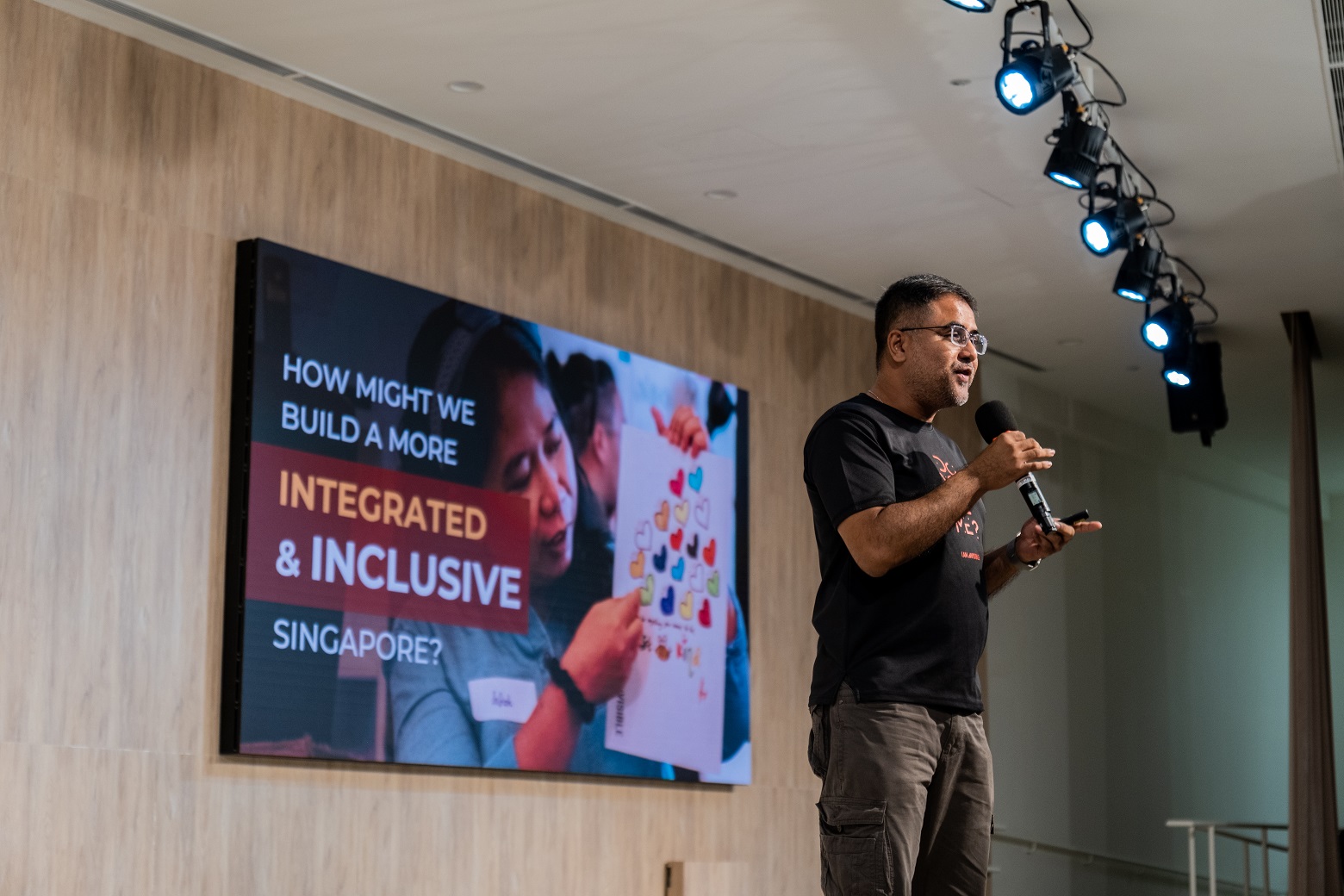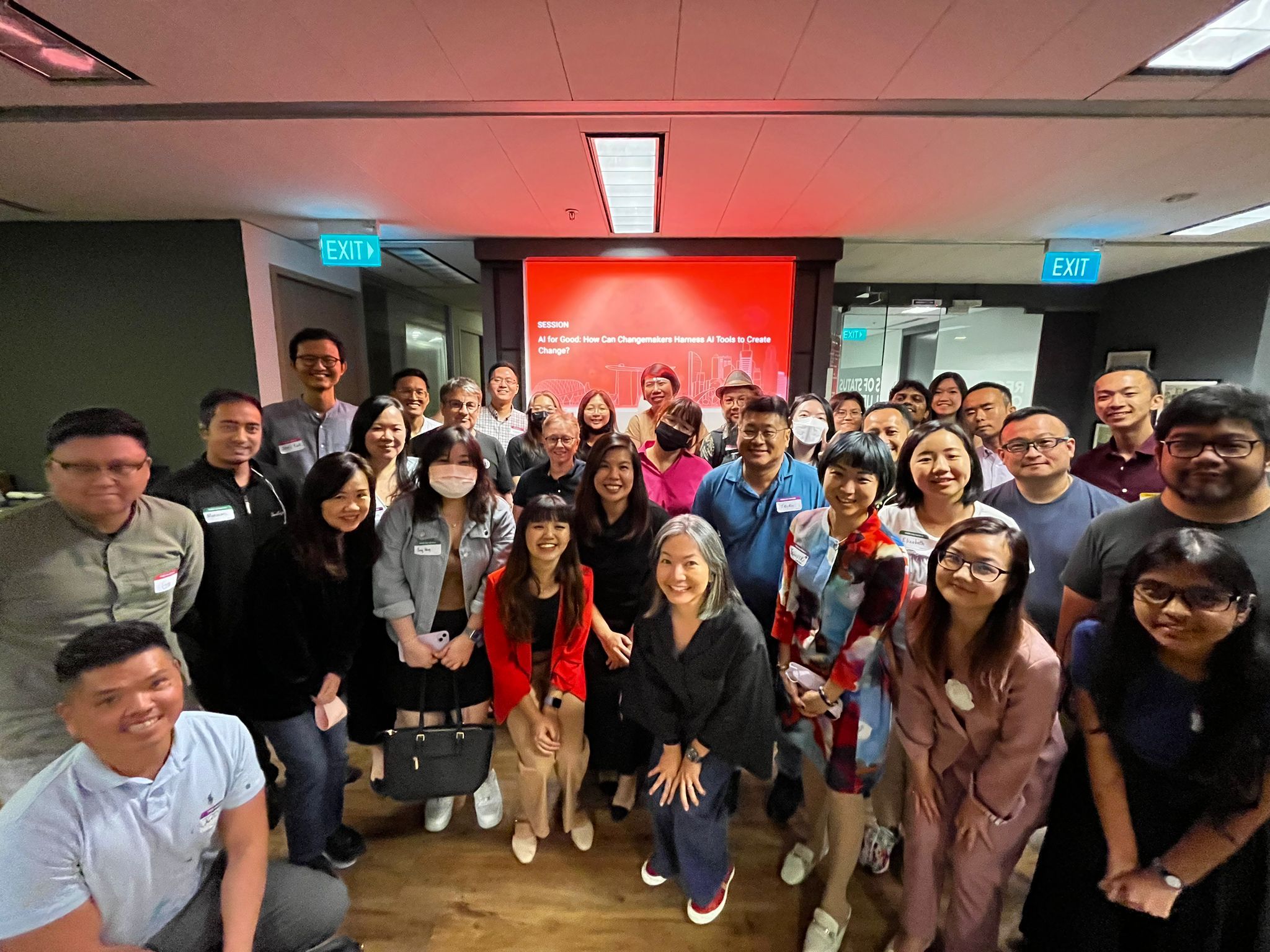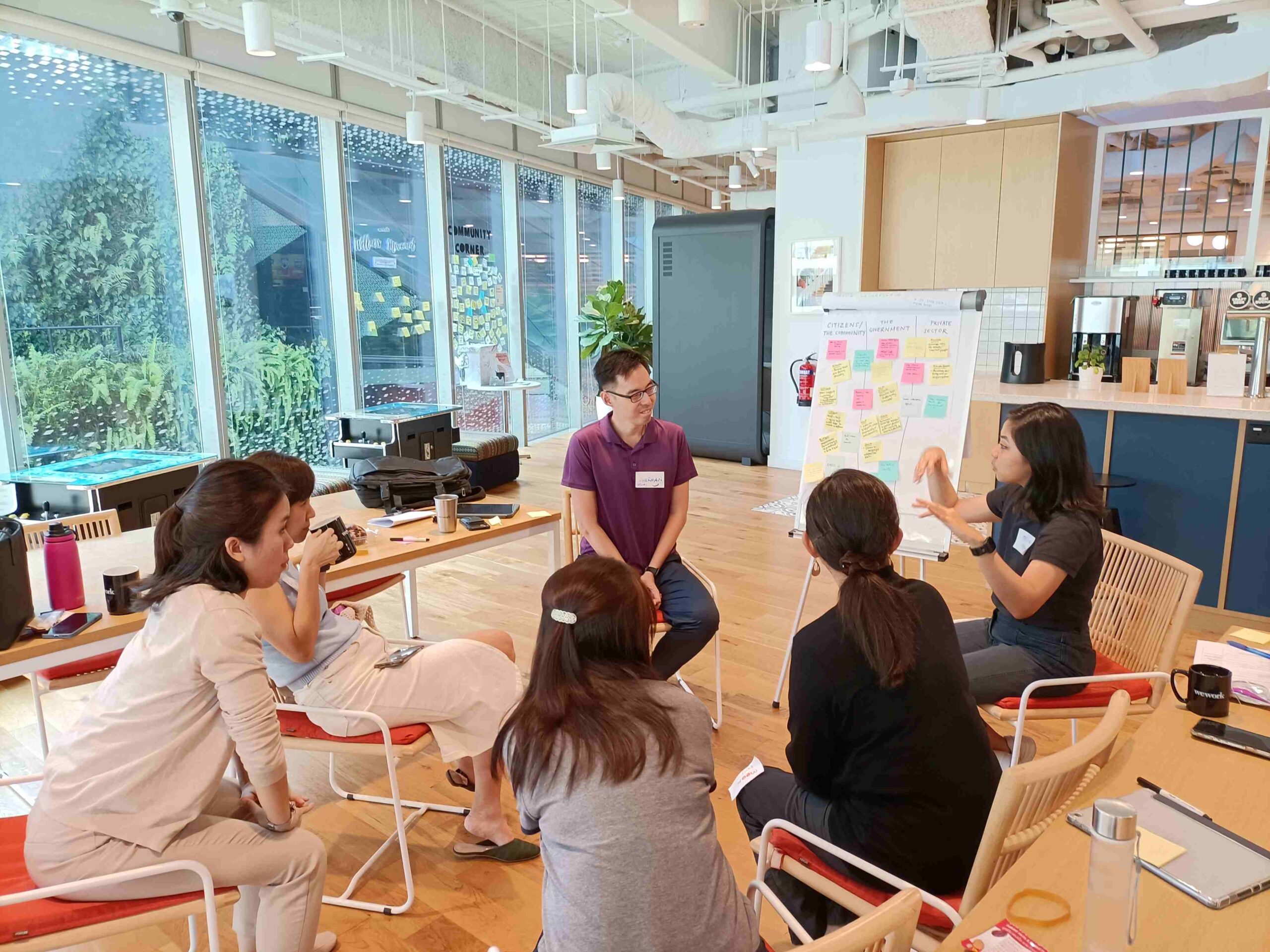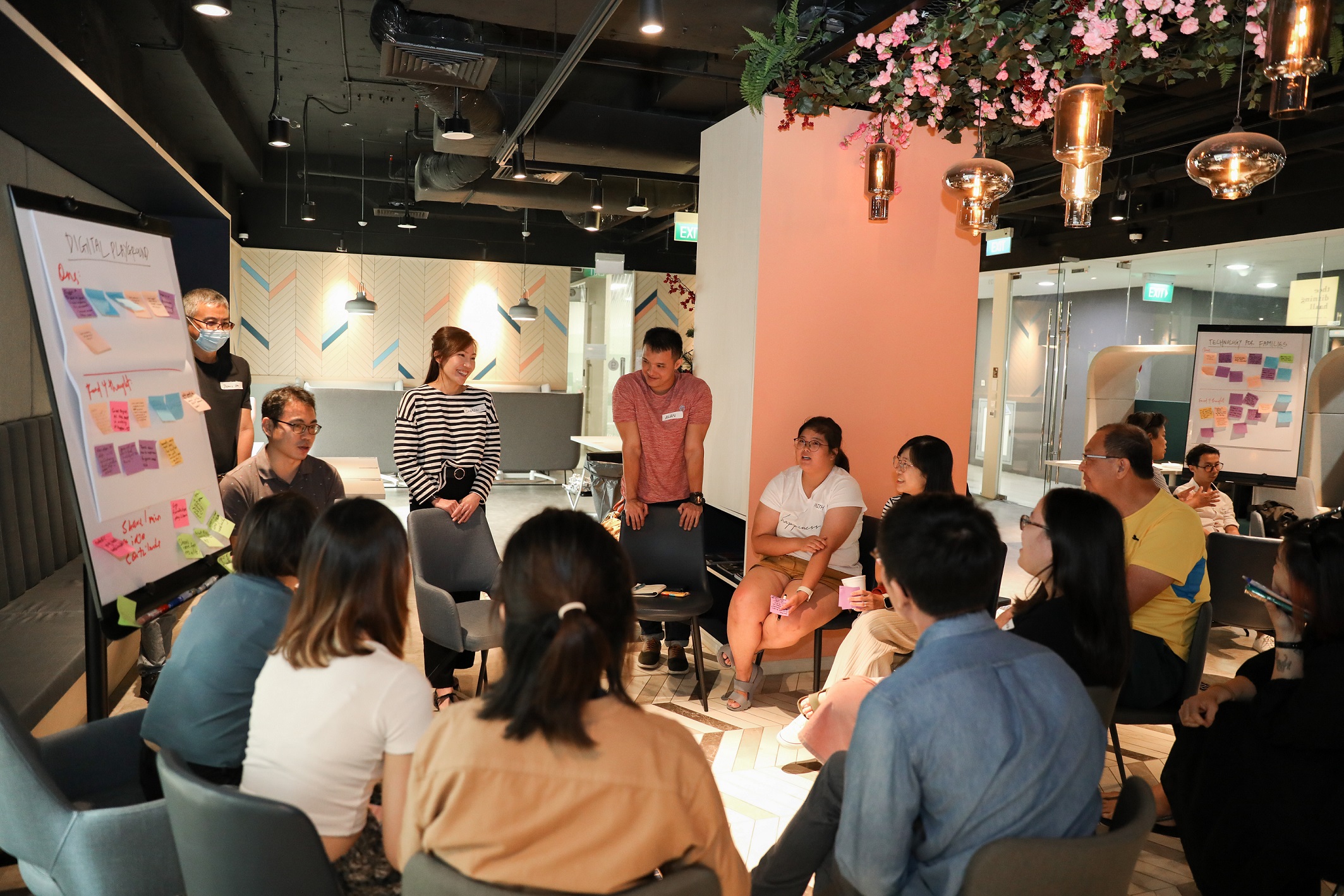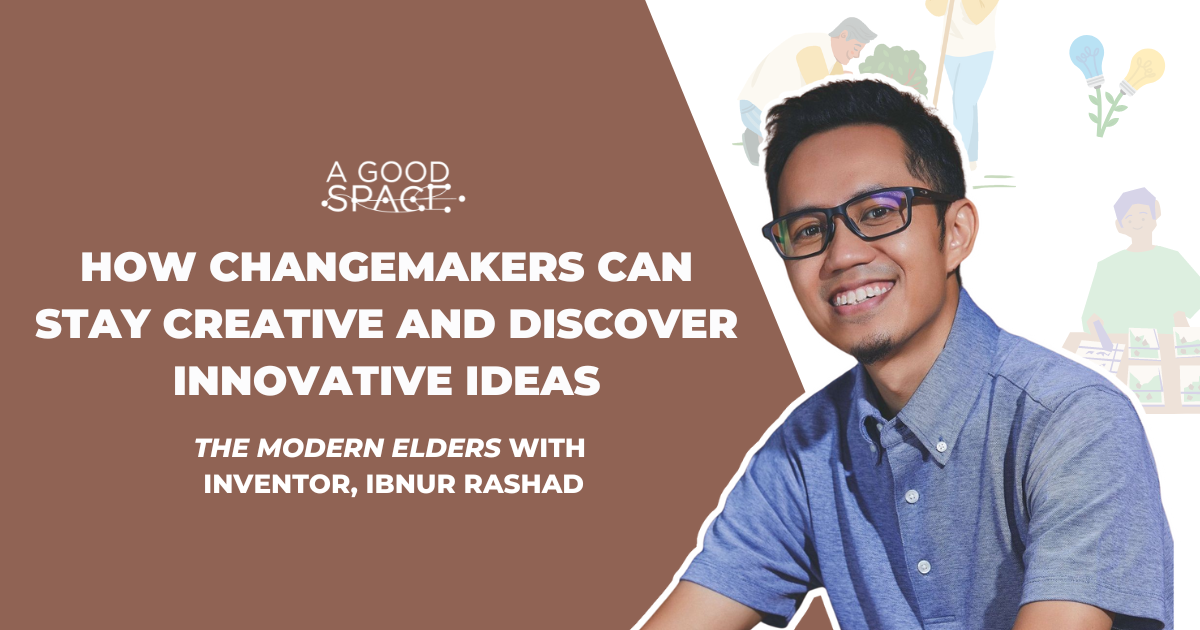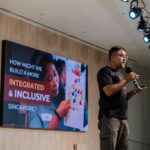"As parents, we are sometimes too hard on ourselves but at the end of the day, we have one mission - to love our children and bring them up to be happy."
- Rosilah Binte Abdul Hamid, single parent
Parents play a critical role in the care, nurturing and protection of their children. While the responsibilities of parents may be similar, the parenting experience can look very different under different circumstances.
What does parenting look like in different communities?
On 19 June 2021, A Good Space organised a virtual conversation to explore this question, in commemoration of the United Nations Global Day of Parents.
We invited 4 speakers with parenting experiences that were rare. They were Valerie (a bereaved parent), Ashokan (a parent of a child with Attention Deficit Hyperactivity Disorder), Rosilah (a single parent), and Zuby (a rainbow parent).
As the speakers shared their moving stories and vulnerable moments, it made me realise how parenting experiences might differ across different communities. Yet, there are common themes in their experiences that unite these parents.
Here was what I learnt:
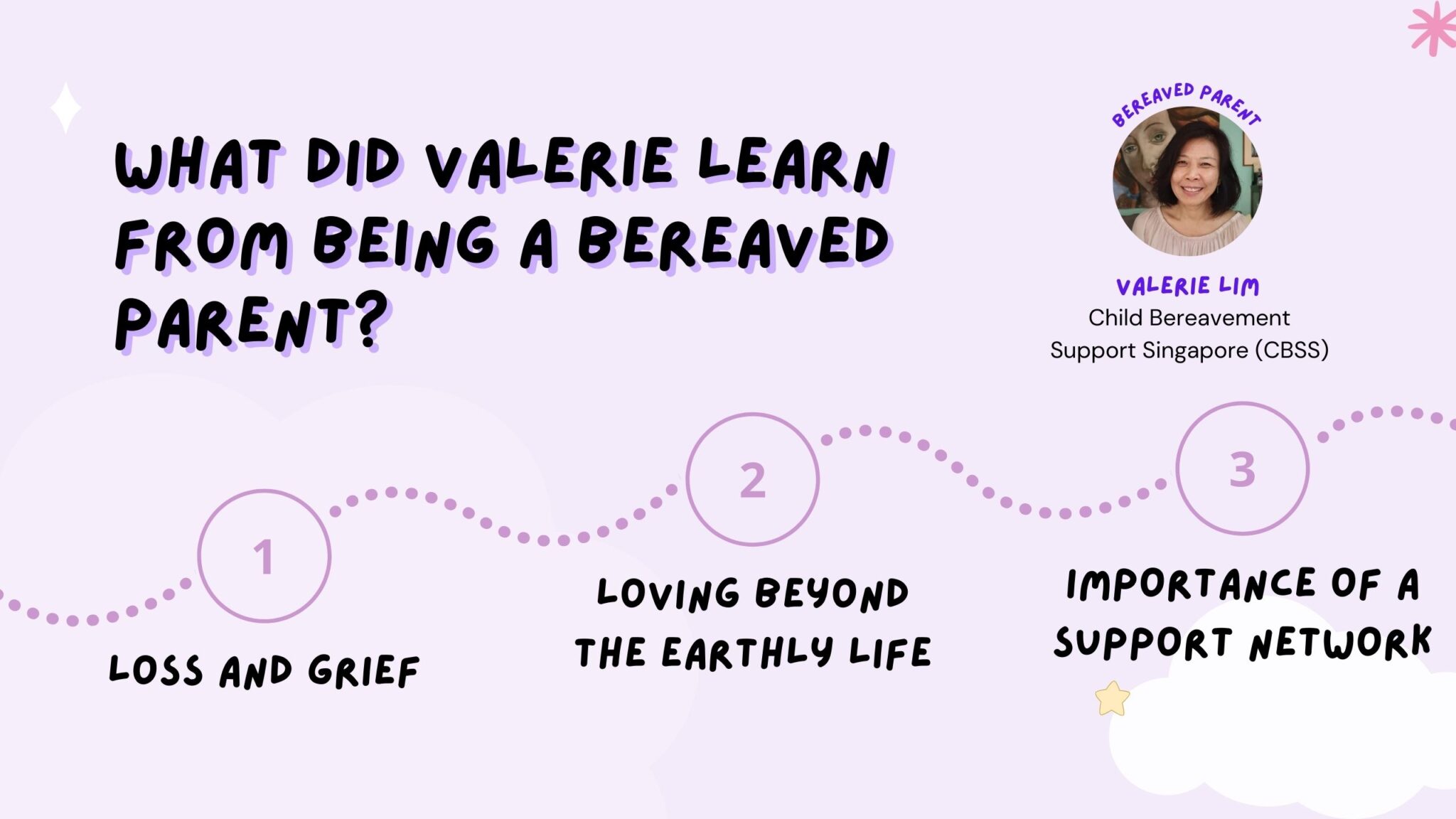
Community #1: Losing a Child
"If you lose your spouse, you are called a widow or a widower. If you lose your parents, you are an orphan. But if you lose your child, what are you called? There's no name for that."
- Valerie Lim
Valerie Lim, our panelist from this community, lost her daughter when she was just 16 months old. The loss upheaved her entire life and she battled the deep grief and pain for years following her daughter’s passing.
She shared 3 key insights from her experience as a bereaved parent:
1. Loss and Grief
Valerie mentioned that when one loses a child as a parent, one becomes very vulnerable. This vulnerability permeates the body and mind, and one often feels paralysed by the loss.
In Valerie’s case, she felt that she had lost her sense of purpose in life, as all her hopes and dreams for her daughter had been dashed.
How did she cope with this loss, process her grief, and embark on a journey of healing?
2. Loving beyond the Earthly Life
"No matter how short an experience you have with your child, you will always be their parent and they will always be your child."
- Valerie Lim
It is important for Valerie, in coping with her grief, to keep her daughter alive in their family life and memories.
She spoke about how she brought up her 2 sons to understand that they will always have a sister, even though she was no longer physically there with them. Her family and friends also talk about her daughter to keep their memories of her alive.
This might seem surprising, even uncomfortable, to some of us. Won’t bringing up someone’s loss open their wounds again? Many of us are unsure on how to broach the topic of death and loss, and hence would prefer to avoid it altogether.
However, shunning bereaved parents might not be the best way to help them cope with the grief.
In fact, psychologists and grief experts have found that it is important to talk openly and honestly about grief as this helps the bereaved to confront and process their feelings. Reminiscing memories of a loved one also helps the bereaved to attain a sense of peace.
Suppressing grief and other negative emotions that come with it can lead to a host of physical and mental conditions for the bereaved. Hence, it is important for us to provide a much-needed listening ear for bereaved parents to talk about their grief.
3. Importance of a Support Network
Valerie recognises that when one experiences a deep loss, it is natural for one to self-isolate and withdraw from social activities to grieve. She shared that this can be dangerous in the long run and it is important to surround oneself with a strong support network in order to cope with the grief.
It has also been found that support for bereaved parents should be extended to the workplace. Many bereaved parents struggle to adapt to the workplace after their loss, so it is important for colleagues to be empathetic and to provide emotional support for them.
With the understanding that bereaved parents need a social support network, Valerie founded Child Bereavement Support Singapore (CBSS) to empower bereaved parents in healing.
She hopes to promote a greater understanding of child bereavement and what more could be done to support bereaved parents through their grieving and healing journey.
To learn more about CBSS’ work, you can head over to their Facebook group here or check their website out, here.
Community #2: Parenting a Special Needs Child
Ashokan Ramakrishnan, our panelist from this community, has a daughter with Attention Deficit Hyperactivity Disorder (ADHD). He shared his struggles as a parent of a special needs child and how he strives to love her unconditionally.
He also beautifully outlined 4 steps that parents with special needs children can consider in working towards unconditional love for their children:
1. Understand
Importantly, Ashokan shared that the first step is to understand where their child’s behaviour stems from. What gives rise to their child’s urges to act in a certain manner?
He mentioned that children with ADHD often cannot control their impulses and hence they might appear wilful and rebellious.
However, if parents can understand that such behaviour is due to their child’s neurobiological condition and not by wilful choice, it will be easier for them to react with empathy and patience.
2. Accept
Secondly, Ashokan mentioned that it is crucial for parents from this community to accept that their child has special needs.
Being in denial of their child’s diagnosis can be detrimental to both the parents and their child. Parents might find it difficult to process that their child has different needs from mainstream children, and that different care and support arrangements are needed for their child.
The child might then be deprived of the necessary support from his or her parents.
3. Embrace
After understanding where their child’s behaviour comes from and accepting that he or she has special needs, this will empower parents from this community to embrace their child.
In Ashokan’s words, embracing means “to provide love and support in an unbounded way”. This could be a great leap in improving the parent-child relationship.
4. Let Go
Lastly, Ashokan spoke of how parents in this community could learn to take a step back and allow their child to chart their own path. This necessarily comes with trust — trusting that their child is able to make important decisions and navigate his or her own life journey.
Of course, this does not mean that the parents are absolved of all parenting duties. In fact, Ashokan envisions parents to be strong pillars of support and guidance, rather than trying to steer and control their child’s life.
Hence, trusting and empowering their child to navigate the outside world is an important step towards unconditional love, since it entails embracing all the mistakes and flaws in their child.
Ashokan is now involved with the Society for the Promotion of Attention-Deficit Hyperactivity Disorder Research & Knowledge (SPARK), an organisation that supports parents and families of ADHD children in their caregiving journey.
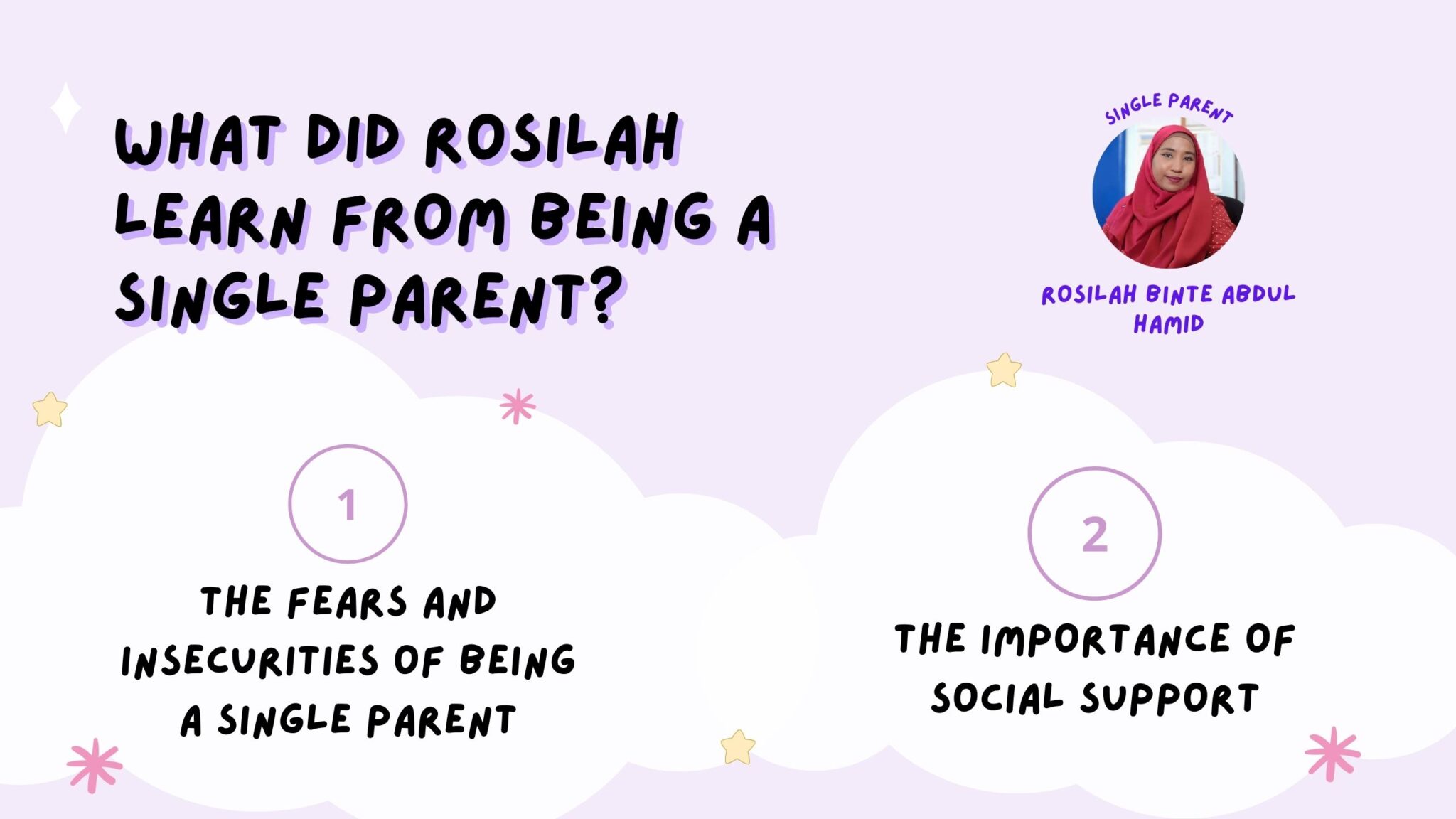
Community #3: Raising a Child Alone
Rosilah Binte Abdul Hamid, our panelist from this community, is no stranger to parenting struggles. She went through a divorce 11 years ago and is now a single mother to 2 teenage daughters.
Rosilah shared 2 main insights in her journey as a single parenthood journey thus far:
1. Fears and Insecurities of a Single Parent
Having to juggle work and raising her children as a single parent was a great struggle for Rosilah.
When her daughters were younger, Rosilah had to work for long hours outside of home to support the family. She experienced deep fear and worry about having to leave them alone at home without supervision. Rosilah was also afraid that because of this, her children might be taken out of her care.
This is a common struggle amongst low-income single parents, who might find it difficult to afford or secure quality childcare. Hence, they might have to leave their children behind in order to work and make ends meet.
Perhaps it is a good opportunity for us to consider: What more could be done to support low-income caregivers, especially single parents? How might we ensure that there are proper childcare services in place to support these single parent caregivers?
2. Importance of Social Support
“I had no family, but the social workers became my family.”
— Rosilah Binte Abdul Hamid
Being a single parent trying to fill the shoes of two parents could feel like a tall order. For Rosilah, the period right after her divorce was difficult and rocky as she experienced a lack of family support while adjusting to her new life as a single mother.
Fortunately, Rosilah had access to other social support networks. Social workers from a Family Service Centre supported her on her post-divorce healing journey, and her classes at Daughters of Tomorrow also gave her the courage to return to the workplace.
Social support networks for single parents are even more crucial considering how they face a host of other challenges such as difficulties in accessing public housing, employment, childcare, financial instability, and social exclusion.
Rosilah now strives to give back to society by establishing Caring Ukhwah to distribute vouchers to members of low-income communities.
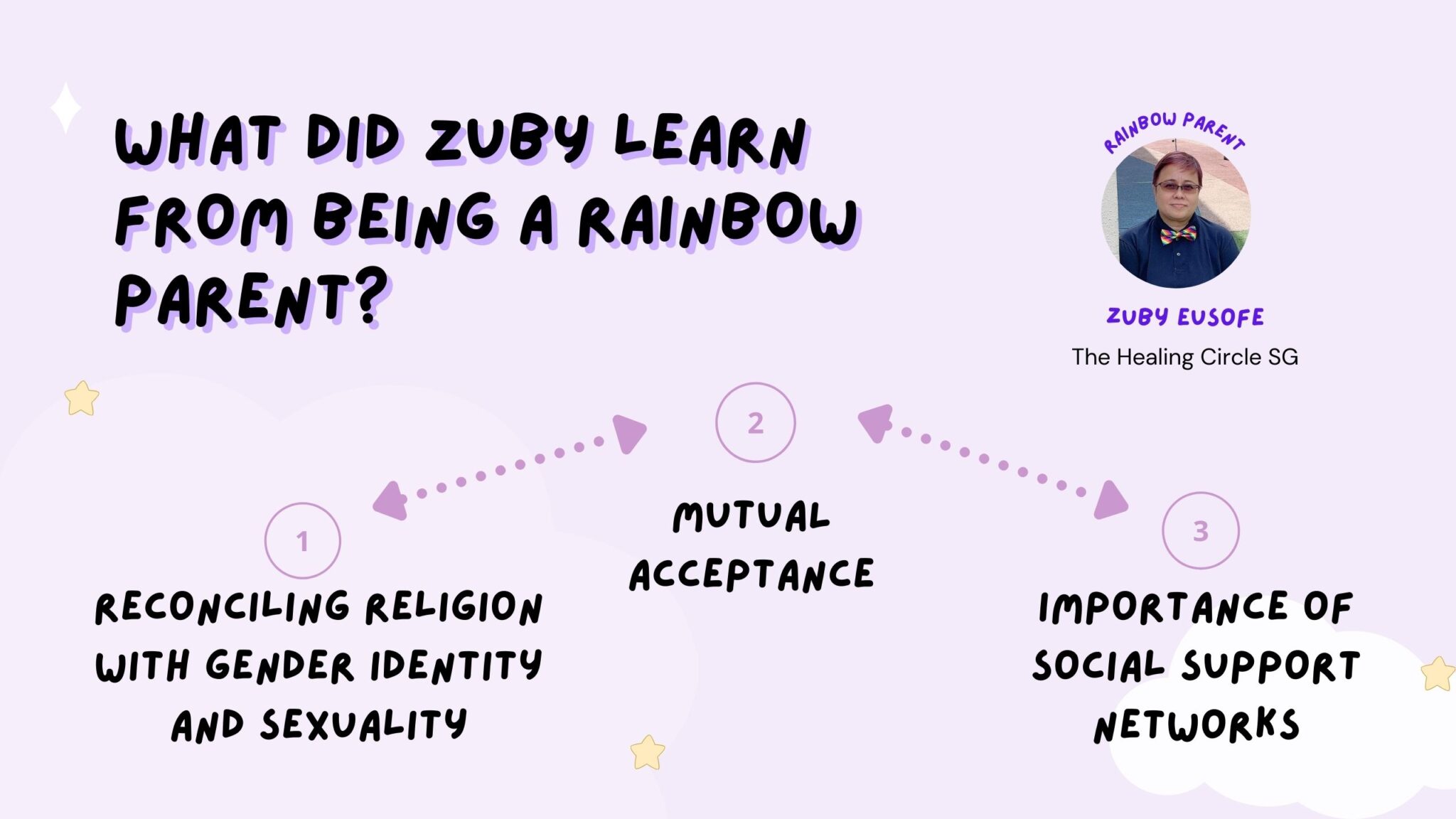
Community #4: Parenting a Child as a Rainbow Parent
Zuby Eusofe, our panelist from this community, also experienced her fair share of parenting struggles. As a parent from the LGBTQ+ community, she faces multiple layers of complexities in her parenting journey.
She also shared 3 main insights as a rainbow parent thus far:
1. Reconciling Religion with Gender Identity and Sexuality
Born into a strict religious family, Zuby shared that she did not have a safe space to explore issues surrounding her gender identity and sexuality. She also struggled with reconciling her religion with her gender identity and sexuality.
Eventually, with self-acceptance and support from other queer Muslims, Zuby started working towards reconciling different aspects of her identity that were important to her.
These personal struggles also shaped Zuby’s parenting style, as she learned to be more open-minded and empathetic towards her son.
2. Acceptance — From Parent to Child and Vice Versa
When Zuby first revealed her gender identity and sexuality to her son, she was met with resistance and denial from him. Her son’s then-girlfriend also broke up with him because of Zuby’s sexuality.
It was an arduous journey that required time and patience before her son came around to accepting her and their parent-child relationship could be mended.
Similarly, as a devoted Muslim, Zuby was thrown off-guard when her son spoke to her about his intentions to become a Christian. Zuby shared that it was her unconditional love for him that enabled her to embrace his new religious identity.
3. Importance of Social Support Networks
When Zuby ended her arranged marriage, she was inflicted with self-blame and spiralled into depression. It was through support from her social network that she managed to start healing.
With this understanding that queer Muslims and rainbow parents might face additional layers of challenges, Zuby also established The Healing Circle to support and empower them through their journey of healing and self-expression.
What might be some intersections across the 4 communities?
As we listened to the panelists’ stories, the first thought that came to mind was how seemingly disparate their lived experiences are. However, might there also be some similarities in the parenting experiences across the different communities?
Unconditional Love
Perhaps the strongest theme common across the 4 communities is unconditional love.
All the panelists agreed that it was unconditional love for their children that kept them going despite numerous obstacles and struggles. Unconditional love in the form of understanding their children and embracing them whole-heartedly despite their flaws.
However, unconditional love should also be extended towards themselves.
The panelists spoke of how doubt and insecurities are part and parcel of parenting. However, instead of blaming themselves harshly after setbacks, parents could maintain a positive outlook and learn to forgive themselves. This will empower them to be stronger when dealing with future challenges.
Importance of Social Support
Another key takeaway from the session is how social support is crucial in helping the 4 parents across the different communities to overcome various struggles.
This made me reflect on the role of society in supporting members of less visible communities. How might we better support these communities in our personal capacity?
P.S. You can also head to our blog post here to learn more about what organisations are doing to support parents in the 4 communities we have featured.
What’s Next?
This event arguably broached difficult topics that might be uncomfortable to some: Grief, loss, and struggles were heavy topics that the panelists have personally experienced and shared.
But there were also positive and beautiful takeaways like hope, love, and growth through the parenting journeys. I’m very grateful that this event beautifully spotlighted the intersections between parenting experiences in different communities.
Perhaps as we think about parenting in the future, it will be good if we can also keep an open-mind and extend greater empathy to parents from less visible communities.
If you would like to learn more about how social issues exist and interact in different communities, we welcome you to participate in future Lived Intersections events at A Good Space!
Subscribe to our mailing list here to be kept in the loop for our next session!

Canice Ho
Canice is a Programmes and Special Project Intern at A Good Space. She finds joy in the simplest things, like taking long hikes in nature and enjoying a good ice cream.
